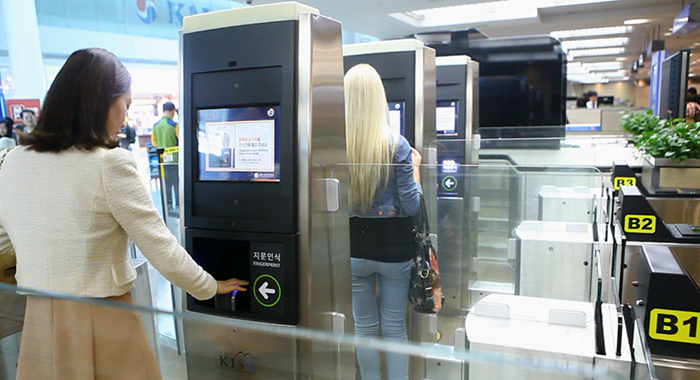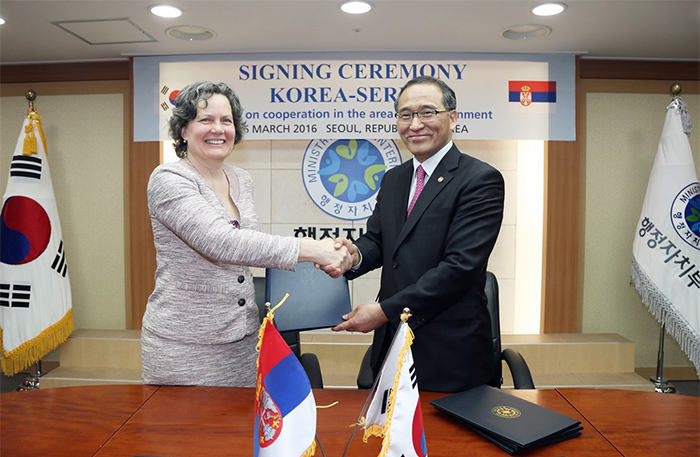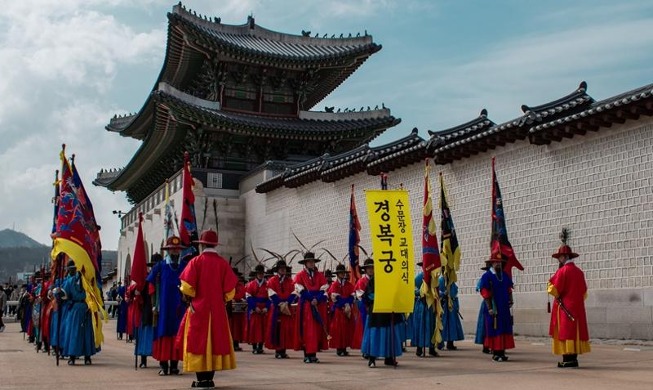-
 Korea.net's 24-hour YouTube channel
Korea.net's 24-hour YouTube channel- NEWS FOCUS
- ABOUT KOREA
- EVENTS
- RESOURCES
- GOVERNMENT
- ABOUT US
On Nov. 20, the Ministry of Foreign Affairs and the Ministry of the Interior dispatched a delegation of experts on e-government services to visit these four governments. Its mission is to host the sixth Korea-BSEC IT Cooperation Workshop in each of the four countries.
The BSEC was launched in 1992 at the instigation of Turkey, aiming to increase trade and expand economic cooperation among countries in the region that border on the Black Sea, as well as neighboring countries that don’t have direct access to the waters of the Black Sea.
The body’s 12 members are Turkey, Serbia, Albania, Azerbaijan, Russia, Armenia, Bulgaria, Georgia, Greece, Ukraine, Moldova and Romania. Korea has served as a sectoral dialogue partner (SDP) at the organization since 2011.
The Korean government and the BSEC are co-hosting the Korea-BSEC IT Cooperation Workshop with the aim of sharing knowhow about state-of-the-art IT and e-government services, and also of expanding mutual cooperation on the sector with each other. The workshop marks its sixth year this year.

The sixth Korea-BSEC IT Cooperation Workshop, held first in Turkey and set to be held in Serbia, Albania and then Azerbaijan, in turn, touches upon Korea’s successful rollouts of e-government services, including its Smart Entry Service (SES) kiosks (pictured) at the airport and other points of entry, where passengers have only to scan their fingerprints and faces. Also, the Korea Customs Service’s electronic customs clearance system greatly shortens the time and cost required to handle imports, exports, taxes and custom duties.
The four-country workshop began with a forum in Ankara on Nov. 21 and 22, and a series of sub-forums will take place in Serbia on Nov. 23 and 24, Albania on Nov. 25, and Azerbaijan on Nov. 28.
The Ankara forum invited representatives from the Turkish Information and Communication Technologies Authority (ICTA). Talks touched upon the development of Korea’s information communications networks and public data, smart cities and the Internet of Things (IoT), and, also, cyber security and big data. In addition, participants were briefed on some of successful examples of the Korean government rolling out e-government services. They touched on an electronic customs clearance system that expedites the handling of imports, exports, taxes and custom duties, an automated tax return system called Hometax, a national archives management system and general online e-learning platforms.

Former Serbian Deputy Prime Minister Kori Udovicki (left) and Minister of the Interior Hong Yun-sil sign a memorandum of understanding covering e-government services, in Seoul on March 16 this year. The sixth Korea-BSEC IT Cooperation Workshop will be held in Serbia on Nov. 23 and 24, part of Korea's efforts to enhance bilateral cooperation across the region on IT and e-government.
The next forum, set to be held in Serbia, will focus on an e-government project for 2017 being pushed forward by the Serbian government.
A memorandum of understanding on e-government was signed between Korea and Serbia in March this year when former Serbian Deputy Prime Minister Kori Udovicki visited Seoul.
The upcoming Serbian forum will introduce Korea’s national pension service, knowhow on the identification of illegal pension claims, and on the analysis of financial quotas. Experts in electronic taxation from the Korea Customs Service will also be part of the discussion, covering ways to enhance Korea-Serbia customs cooperation under the theme of “Modernization of Customs Administration in Serbia.”
Finally, e-government experts from Albania and Azerbaijan will have a chance to learn more about the Korean government's range of e-government services, as well as talk about cyber security, open data, big data and ways to further boost cooperation on these sectors among industrial and academic bodies.
By Sohn JiAe
Korea.net Staff Writer
Photos: Ministry of Justice, Ministry of the Interior
jiae5853@korea.kr













